Born in London, Jan 13, 1904
Died in Chelsea, London, Nov 14, 19771
Nationality: English
ALLISON, Richard
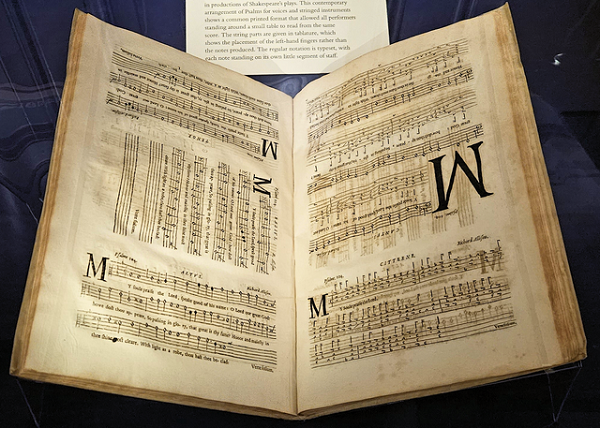
Born c.1560–70
Died before 1610
- Richard Allison was a composer during the late Elizabethan age. We know little of his life and work besides what has been published.
- Allison’s published works include psalm settings and instrumental works.
- Based on his publications, we know Allison worked in the service of the Earl and Countess of Warwick in the 1590s, followed by Sir John Scudamore.
- *Alternative spellings of the composer’s last name include:
- Alison
- Allysonn
- Aloyson2
Pieces
ALWYN, William

Born in Northampton, Nov 7, 1905
Died in Southwold, Sept 11, 1985
- Alwyn was a composer, and a flutist with the LSO (London Symphony Orchestra).3
- Alwyn was married to composer Doreen Carwithen, also known as Mary Alwyn.
- Known for: film music: he composed for films by British Ministry of Information during WWII; collaborated notably with director Carol Reed, and his most famous score was for Odd Man Out (1947)4
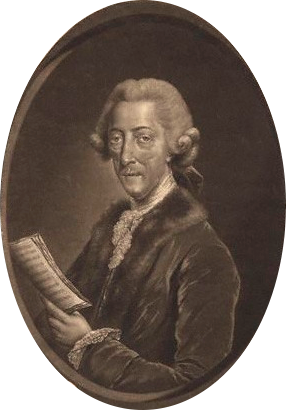
Born in London, March 12, 1710
Died in London, March 5, 1778
- Thomas Arne [“Arn;” PRONUNCIATION] composed English theater music: masques, plays with music, and operas.
- Arne often collaborated in theater productions with his sister, tragic actress Susanna Arne Cibber (she was the original soprano soloist in Handel’s Messiah).
- Arne is perhaps best known for composing “God Save Our Noble King” (aka “My Country ‘Tis of Thee”).5
Learn More
Short biography
ARNOLD, Sir Malcolm
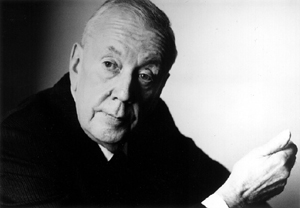
Born in Northampton, Oct 21, 1921
Died in Norwich, Sept 23, 2006
- Arnold won a scholarship to the Royal Academy of Music when he was only 16.
- Arnold was an excellent trumpeter who played in the London Symphony Orchestra and other ensembles early in his career.
- Arnold was a prolific composer of both film music and concert music.6
ASHMORE, Lawrence

Born Feb 12, 1928
Died March 5, 2013
- Lawrence Ashmore was a Royal College of Music-educated double bassist and orchestrator and arranger. He worked on film scores ranging from Lawrence of Arabia to Bridget Jones’s Diary. 7
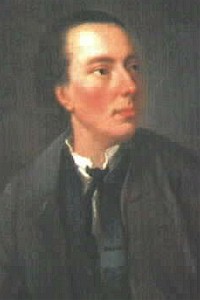
Born in Newcastle upon Tyne, bap. Feb 16, 1709
Died in Newcastle upon Tyne, 9/May 10, 17708
Pieces

Born in London, c.1690
Died Islington, London, Sept 23, 1723
- Babell was a violinist, harpsichordist, and organist based in London.
- In his time, Babell was known for showy keyboard arrangements of operatic excerpts by Handel and others.1
Sources
- Gerald Gifford and Terence Best, “Babell [Babel], William,” Grove Music Online (2001), accessed July 15, 2019, https://www.oxfordmusiconline.com/grovemusic/view/10.1093/gmo/9781561592630.001.0001/omo-9781561592630-e-0000001648.
Pieces
BAINTON, Edgar
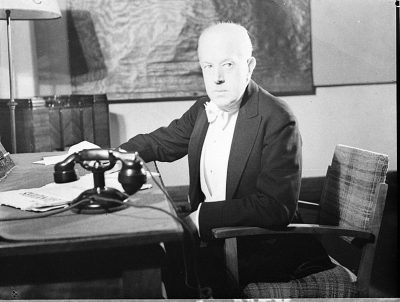
Born in London, Feb 14, 1880
Died in Sydney, Australia, Dec 8, 19569
[Pronounced BAYN-ton]
Biography from the Australian Dictionary of Biography
Pieces
BALL, Christopher
BANTOCK, Sir Granville
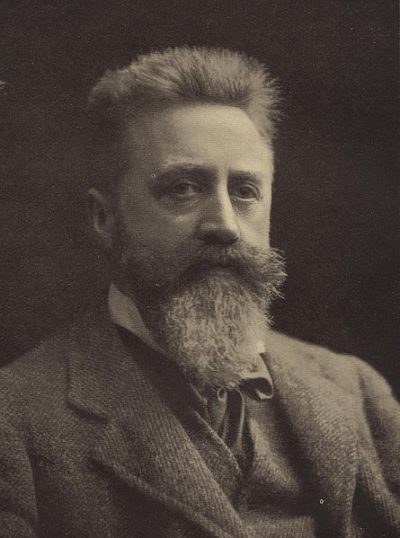
Born in London, Aug 7, 1868
Died in London, Oct 16, 194610
BARNS, Ethel
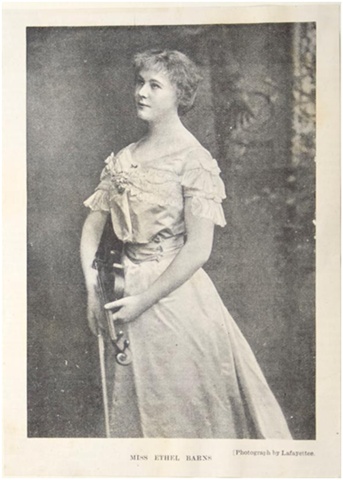
Born in 1874
Died in Maidenhead, Dec 31, 1948
- Ethel Barns was an English violinist and composer who received her formal training at the Royal Academy of Music starting at age 13. By 17, Barns had published her first composition, a Romance for violin and piano.
- As a composer, Barns wrote most often for her primary instrument, the violin. Her music ranges from short, inventive solo pieces to large-scale works for violin and orchestra.
- Following her marriage to baritone Charles Phillips, the couple established their popular Barns-Phillips Chamber Concerts at London’s Bechstein Hall.
- Barns regularly programmed her own music for these concerts, which helped her gain notoriety as a composer. Prominent violinists like Joseph Joachim soon started adding her music to their repertoire.
- Like Ethel Smyth, Barns actively participated in the fight for women’s equality. She served on the first council of the Society of Women Musicians, which was founded in 1911.11
Learn More
BARRY, John

Born in York, England, 3 Nov 1933
Died in Oyster Bay, NY, 30 Jan 2011
- Barry is known for:
- rock- and jazz-influenced film music
- arranging or composing scores for many James Bond films, including Dr No (1962, arranger) & The Living Daylights (1987, composer)
- He composed musical Billy (1974), and also composed symphonic-style film scores, incl. The Lion in Winter (1968) and Dances with Wolves (1990).
- Barry became interested in composing film music while working as a projectionist at his father’s movie theaters.12
Short biography from NPR
Flourished 1708–39
- Baston was an English composer, recorder player, and cellist.13
- He often performed with his brother, violinist Thomas Baston (fl. 1708-27), with orchestras and in theaters in London and Greenwich.14
- One of Baston’s compositions appeared in a 1750 flute music collection edited by John Simpson, entitled Delightful Pocket Companion.15
BAX, Sir Arnold
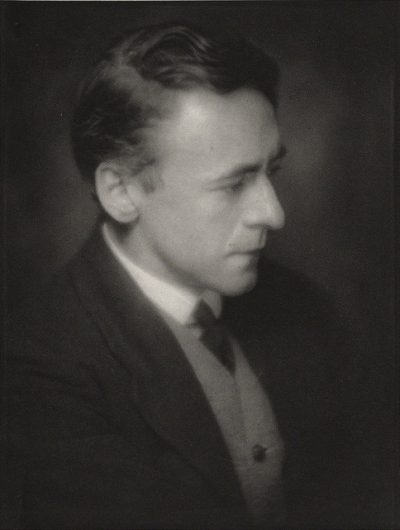
Born in Streatham, UK, Nov 8, 1883
Died in Cork, Oct 3, 1953
- Sir Arnold Bax was well regarded as English symphonist in 1920s and 30s.
- He also composed ballets, tone poems, and film scores, including Oliver Twist (1948, dir. David Lean).16
BENNETT, Sir Richard Rodney
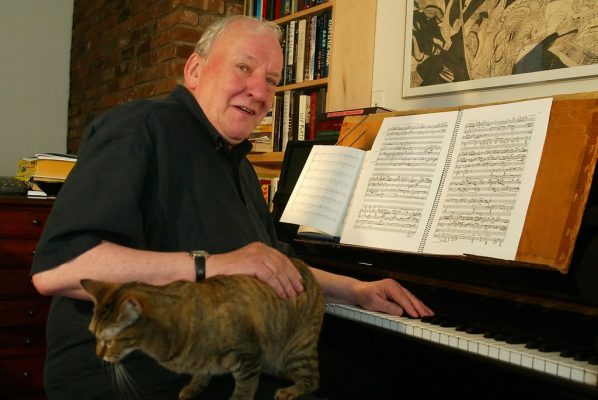
Born in Broadstairs, March 29, 1936
Died in New York, Dec 24, 201217
BERKELEY, Sir Lennox
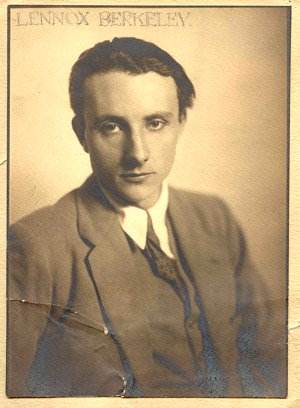
Born in Sunningwell Plains, Boars Hill, Oxford, May 12, 1903
Died in London, Dec 26, 1989
- Lennox Berkeley was an English composer from an aristocratic family.
- Berkeley loved French music, was a friend of Ravel and Poulenc, and studied with Nadia Boulanger.
- Berkeley was a devout Catholic and he was notable for the deep emotion of his religious music (a quality also present in his instrumental slow movements, according to Grove’s article).18
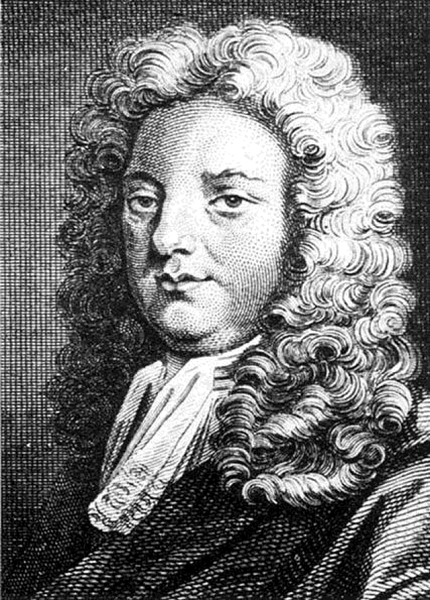
Born in Newark, Nottinghamshire, bap. Feb 23, 1649
Died in Westminster, London, Oct 1, 1708
- John Blow was an English composer, organist, and teacher best remembered for his sacred and ceremonial music. He also wrote the first (surviving) English opera, Venus and Adonis.
- Blow’s pupil, Henry Purcell, would overshadow this early opera with his own theatrical work, Dido and Aeneas.
- In addition to composing, Blow was known for his work as organist at Westminster Abbey, first from 1668-1679 and then again from 1695 until his death (he had bequeathed the position to Purcell in the interim and resumed it following Purcell’s death).19
- The following was inscribed on Blow’s burial monument in Westminster Abbey:
Here lieth the Body of John Blow, Doctor in Musick, who was Organist, Composer, and Master of the Children of the Chapel Royal for the Space of 35 Years, in the Reigns of K. Charles II, K. James II, K. William and Q. Mary, and her present Majesty Q. Anne: And also Organist of this Collegiate Church about 15 Years. He was Scholar to the excellent Musician Dr. Christopher Gibbons, and Master to the famous Mr. Henry Purcell, and most of the eminent Masters in Musick since. He died Oct. 1st, 1708, in the 60th Year of his Age. His own Musical Compositions (especially his Church Musick) are a far nobler Monument to his Memory, than any other can be raised for him.20
Pieces
BOUGHTON, Rutland

Born in Aylesbury, Jan 23, 1878
Died in London, Jan 25, 1960
[“BOW-ton”]
- Rutland Boughton’s artistic goal (expressed in book Music Drama of the Future, which he co-authored in 1911) was to foster a British version of Wagnerian music drama.21 For this purpose he founded and directed the Glastonbury Festival from 1914-1927,22 in which British artists, musicians and writers worked together to create or revive operas, plays and concerts.
- In addition to operas, including a cycle about King Arthur, Boughton composed choral and orchestral music, and was a writer on the topics of music drama and J.S. Bach.23
BOWEN, York
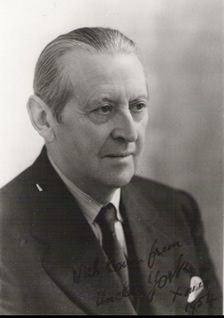
Born in London, Feb 22, 1884
Died in London, Nov 23, 1961
- York Bowen was a composer and pianist whose particular talent for the keyboard instrument was recognized at an early age.
- Starting at age 14, Bowen studied at the Royal Academy of Music, where he won all the piano and composition prizes. In his mid-twenties, he became a professor at the institution.
- Bowen pursued both composition and piano performance professionally. As a pianist, he was known for his technical and artistic excellence.
- As a composer, Bowen wrote over 160 works. Like many of his English contemporaries, Bowen preferred the Romanticism of the previous century to the Avant-Garde movement emerging in the 20th.
- Fun fact – Saint-Saëns thought that Bowen was the “finest of English composers.”24
Learn More
Short biography from the York Bowen Society
Biography from Naxos
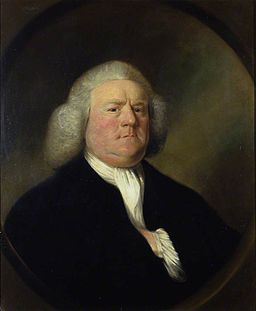
Born in London, bap. Sept 11, 1711
Died in London, Feb 7, 1779
- Boyce was an organist and composer. He studied at St. Paul’s Cathedral choir school under Maurice Greene.25
- Boyce was appointed composer for the Chapel Royal in 1736. He composed organ music, theater music, choral works and music for royal occasions.26
- Boyce’s claim to fame: he edited Cathedral Music (pub. 1760-73), a collection of Anglican church music from Tallis onward.27
- This became a classic anthology in use till the 20th C.
- It was intended not just for practical performance, but as early effort of (what we now call) musicology.
- According his preface, Boyce wanted to record and preserve the music of early English composers for posterity, “in its original purity.”28
BRIDGE, Frank

Born in Brighton, Feb 26, 1879
Died in Eastbourne, Jan 10, 1941
- Bridge was a violist and conductor, and he studied composition at the RCM with Charles Villiers Stanford.
- Bridge’s only composition student was Benjamin Britten.26
BRIGHT, Dora
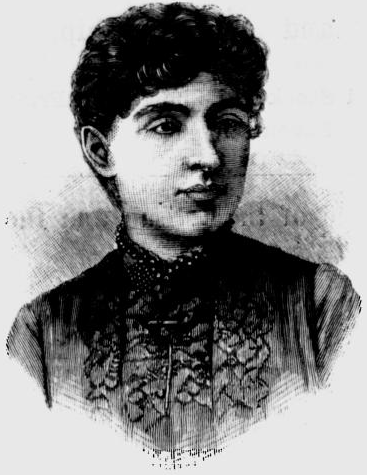
Born in Ecclesall Bierlow, York, August 16, 1862
Died in London, Nov 16, 1951
Sometimes this composer is known by her married name, Dora Knatchbull.
- Bright was an English composer, concert pianist, and music critic.
- Bright studied piano and composition at the Royal College of Music, where she and Edward German were part of the same artistic circle.
- After her marriage to Wyndham Knatchbull, she transitioned away from public performances and toward more composition and working as a music critic.27
BRITTEN, Benjamin
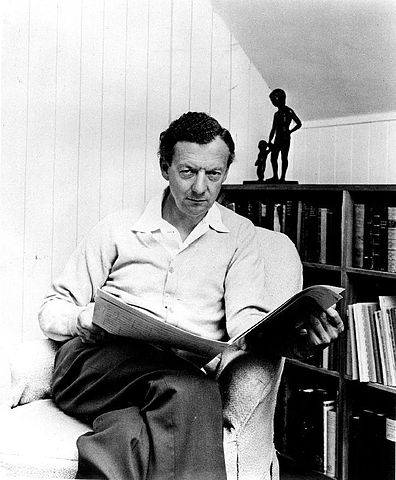
Born in Lowestoft, Nov 22, 1913
Died in Aldeburgh, Dec 4, 1976
Pieces
Young Person’s Guide to the Orchestra, Op. 34
BUSH, Geoffrey
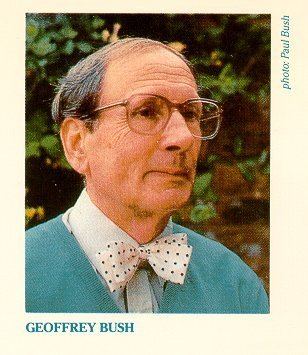
Born in London, March 23, 1920
Died in London, Feb 24, 1998
- Bush was a lecturer in music at Oxford and London universities, and edited music by Victorian and Elizabethan composers.29
- Bush was largely self-taught as a composer, though he was encouraged (as a schoolboy) by English composer John Ireland.30
BUTTERWORTH, George

Born in London, July 12, 1885
Died in Pozières, Aug 5, 1916
- Like Vaughan Williams, Butterworth found much of his artistic identity in English folk music, and in the poetry of A.E. Houseman.
- He set to music six poems from Housman’s poem cycle A Shropshire Lad, and also wrote an orchestral rhapsody based upon it.
- Butterworth was a member of the English Folk Song Society, which collected and conserved English folk music. He was also part of the English Folk Dance Society, and was an accomplished Morris dancer.
- Butterworth served in WWI, fought at the Somme, and died in 1916. This is why we have very little of his music.31
BYRD, William

Born in London, c.1540
Died in Stondon Massey, Essex, July 4, 1623
- Byrd was an Elizabethan composer and organist who navigated life as a church musician during the upset of the English Reformation.
- Byrd composed music for both Anglican and Catholic liturgies, as well secular songs and works for organ and other instruments.32
CARWITHEN, Doreen
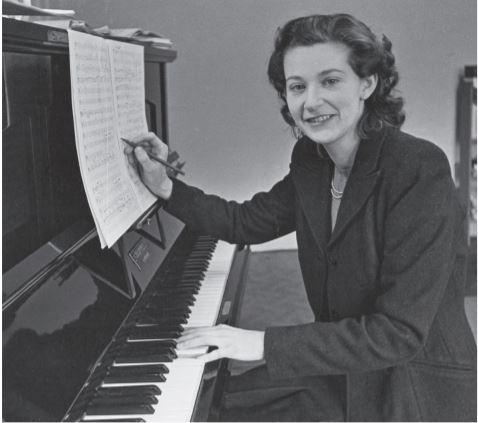
Born in Haddenham, Bucks., Nov 15, 1922
Died in Forncett, January 5, 2003
- Carwithen was an RAM-educated composer, pianist, and teacher. She taught composition at the RAM after graduating, and also taught at Furzedown College in London.
- One of Carwithen’s earliest compositional successes was an overture which Adrian Boult premiered at Covent Garden in 1947. The overture was entitled ODTAA, inspired by a novel of the same name (it stood for One Damn Thing After Another).
- Carwithen composed concert works and a large number of film scores, including the score for the official film of Queen Elizabeth II’s coronation.
- In 1961, Carwithen became an amanuensis for composer William Alwyn (who had also been one of her teachers at the RAM). They married, and she took the name “Mary Alwyn” as her married name. (Mary was her middle name. Apparently she never liked the name Doreen.) 3334
CHAPLIN, Charles
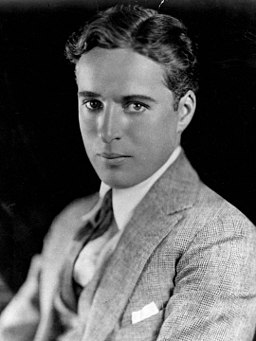
Born c1674
Died in London, Dec 1, 1707
- Clarke was an English composer and organist of the generation before Purcell. Most of his music is written for the church or the theater.
- In childhood, Clarke was a chorister at the Chapel Royal, during the early reign of James II.
- Clarke was organist at Winchester College, then a choral director at St. Paul’s Cathedral and later co-organist of the Chapel Royal with William Croft.
- Clarke died by suicide when he was about 33 years old: according to contemporary reports, he suffered an episode of mental illness after an unhappy romantic relationship.37
CLARKE, Rebecca
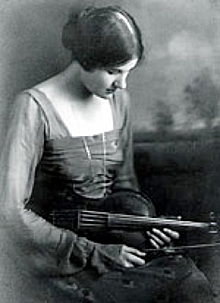
Born in Harrow, near London, Aug 27, 1886
Died in New York, Oct 13, 1979
- Rebecca Clarke was an English violist and composer.
- Clarke studied both violin and composition at the Royal Academy of Music, but was unable to complete either course of study because her father withdrew financial support.
- Clarke embarked on a career as a violist to support herself, and became one of the first women employed in a professional British orchestra (the Queen’s Hall orchestra, directed by Henry Wood).
- In 1919, Clarke’s Viola Sonata was a runner-up at a competition in the Berkshire Chamber Music Festival, sponsored by American arts patron Elizabeth Sprague Coolidge. Judges and press struggled to believe that the work’s composer was a woman; some judges believed the work was by Ravel, and a writer for the Daily Telegraph proposed that the name “Rebecca Clarke” was actually a pseudonym for Ernest Bloch.
“I take this opportunity to emphasize that I do indeed exist … and that my Viola Sonata is my own unaided work!”
Rebecca Clarke, program notes (1977) to her Viola Sonata38
- Clarke was an active viola soloist and chamber player in London in the 1920s, and a member of the all-women piano quartet, the English Ensemble.
- Clarke’s compositional output slowed after the 1940s, partly due to discouragement from lack of recognition.39
Read more at RebeccaClarke.org

Born in Rome, Jan 23, 1752
Died in Evesham, Worchestershire, March 10, 1832
- Born in Italy, Muzio [MOO-tsee-oh] Clementi moved to England as a young man to work for a wealthy patron. He remained based in England even after he began touring as a harpsichordist and pianist.
- Clementi ran a music publishing & piano manufacture firm in London, Clementi & Co.
- Anecdote: 1781, Habsburg Emperor Leopold II (1747-1792) arranged a piano playing competition between Clementi and Mozart, to entertain his guests. They were both asked to improvise, perform their own music, and sight-read pieces by Paisiello.
“Clementi plays well, as far as execution with the right hand goes. His greatest strength lies in his passages in 3rds. Apart from that, he has not a kreuzer’s worth of taste or feeling – in short he is a mere mechanicus.”
Mozart, on Clementi
“Clementi is a charlatan, like all Italians.”
Also Mozart on Clementi
“Until then I had never heard anyone play with such spirit and grace.”
Clementi, on hearing Mozart play 40
CLIFFORD, Hubert
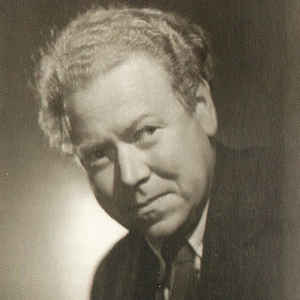
Born in Bairnsdale, Victoria, May 31, 1904
Died in Singapore, Sept 4, 1959
- Clifford was born in Australia, and moved to London to study with Ralph Vaughan Williams.
- Clifford taught music at a boys’ school, composed extensively for the BBC and has many film scores to his credit.41
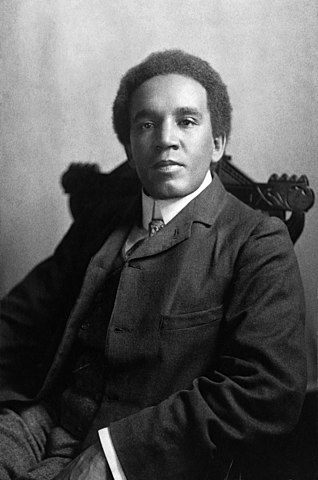
Born in Holborn, London, England, Aug 15, 1875
Died in Croydon, London, England, Sept 1, 1912
- Coleridge-Taylor was an English composer of African heritage. He studied with Stanford at the RCM.
- Coleridge-Tayor toured America several times, where he met Theodore Roosevelt and toured with the Coleridge-Taylor Choral Society, an African American choir formed in his honor. He also toured with Harry T. Burleigh, African-American singer and arranger of spirituals.
- Coleridge-Taylor composed choral and orchestral music, directed Handel Society of London, and was Professor of Composition at Guidhall School of Music and Trinity College of Music.42
Pieces
- 24 Negro Melodies, Op. 59/1
- African Suite, Op. 35
- Ballade in a minor, Op. 33
- Ballade in d minor for Violin and Orchestra, Op. 4
- Clarinet Quintet in f-sharp minor, Op. 10
- Four Characteristic Waltzes, Op. 22
- Four Novellettes, Op. 52
- Gipsy Suite, Op. 20
- Impromptu No. 2 in B Major
- Othello, Op. 79
- Petite Suite de Concert, Op. 77
- Piano Quintet in g minor
- Romance in G for Violin and Orchestra, Op. 39 (1899)
- Romance of the Prairie Lilies
- The Bamboula, Op. 59, No. 8
- Toussaint L’Ouverture, Op. 46
- Valse-Suite, Op. 71
- Violin Concerto in g minor, Op. 80
DAVIES, Peter Maxwell
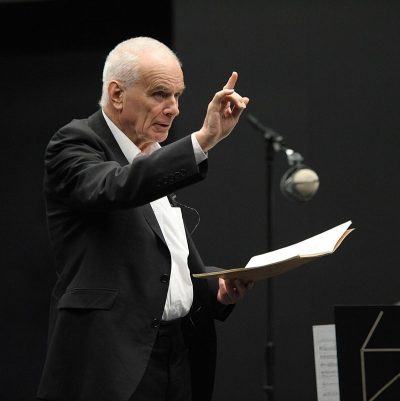
Born in Salford, Greater Manchester, 8 Sept 1934
Died in Orkney, 14 March 201643
Pieces
DODD, Peter
Born in 1930
- Peter Dodd is a contemporary English composer who has spent most of his career in the music department of the BBC.44
DOUGLAS, Roy

Born in Tunbridge Wells, Dec 12, 1907
Died March 23, 2013
- Roy Douglas was a composer and arranger who worked in film and television.
- Douglas had a long collaboration with Ralph Vaughan Williams and William Walton, helping them prepare scores for performance and publication.
- Douglas made a popular orchestration of the Chopin works used in the ballet Les sylphides.
Douglas “knew Vaughan Williams’s mind and, perhaps a rarer accomplishment, could read his handwriting”
From Roy Douglas’s obituary 45
47“Mr. Douglas, who writes my music for me.“
This is how Vaughan Williams liked introducing Douglas to people. Douglas found this very embarrassing.46
DUDLEY, Anne
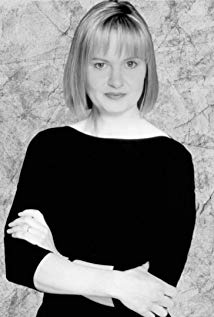
Born in Chatham, May 7, 1956
- Anne Dudley is an RCM-educated film composer and pop musician.
- Dudley’s credits include composing music for the TV show Jeeves and Wooster (1990-93) and the Oscar-winning score for The Full Monty (199746
ELGAR, Sir Edward

Born in Broadheath, near Worcester, June 2, 1857
Died in Worcester, Feb 23, 1934
Pieces
- Carissima
- Cello Concerto in e minor, Op. 85
- Chanson de Matin and Chanson de Nuit, Op. 15
- Cockaigne (In London Town) Overture, Op. 40
- Dream Children
- Elegy for Strings, Op. 58
- Falstaff, Op. 68
- In the South, “Alassio,” Op. 50
- Introduction and Allegro, Op. 47
- May Song
- Mina
- Minuet, Op. 21
- Overture in d minor (Handel, arr. Elgar)
- Pomp and Circumstance March No. 1 in D Major
- Pomp and Circumstance March No. 2 in a minor
- Pomp and Circumstance March No. 3 in c minor
- Pomp and Circumstance March No. 4 in G Major
- Pomp and Circumstance March No. 5 in C Major
- Pomp and Circumstance, Military Marches Op. 39
- Rosemary (“That’s for Remembrance”)
- Salut d’amour (Greetings of Love), Op. 12
- Sérénade Lyrique
- Sevillana, Op. 7
- Sospiri (Sighs), Op. 70
- Spanish Lady Suite, Op. 89
- Symphony No. 1 in A-flat Major, Op. 55
- Symphony No. 2 in E-flat Major, Op. 63
- The Wand of Youth Suite No. 1
- Variations on an Original Theme, “Enigma,” Op. 36
FINZI, Gerald
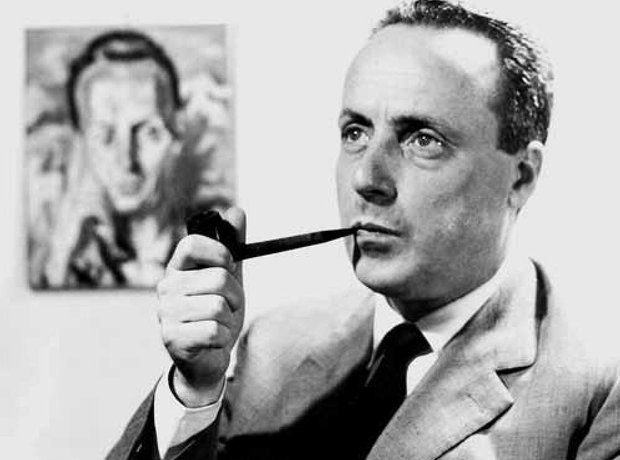
Born in London, July 14, 1901
Died in Oxford, Sept 27, 1956
- Finzi was an introspective composer, an agnostic and a pacifist, whose attitude toward life was shaped by the deaths of his father, brothers and music teacher in the First World War when he was a child.
- Finzi found inspiration in nature. Although he taught for a time at the RAM, he and his wife Joyce, an artist, eventually chose to settle in the countryside where they cared for their orchard of apple trees and created their art in privacy.
- Finzi founded and directed a small orchestra, the Newbury String Players, and through their concerts promoted the work of young composers. His orchestra also performed 18th century English music, one of Finzi’s research specialities. He also prepared scholarly published editions of these older works.
- Finzi is known for his art songs, as well as choral works and orchestral works.48
